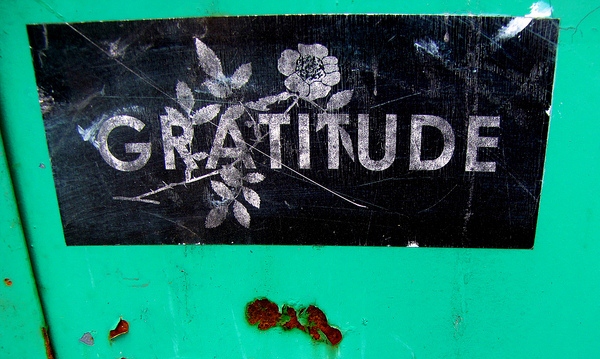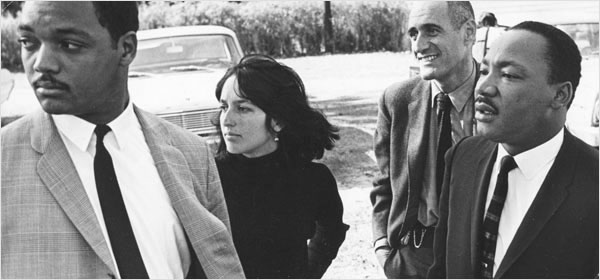
For years I’ve thought about keeping a running “Book of Gratitude” — a volume of reflections on the virtually endless stream of women and men for whom I am thankful. Those I have known. Others I will never meet. People who have made an impact on my life and the lives of others by being who they are — and by all the ways they have struggled for change, sparked new awareness, shared their depth, or have otherwise placed the gifts of survival and transformation in our trembling hands.
This book has yet to materialize. There are, though, times when it seems to be writing itself. I’ve felt this in the last couple of weeks with the recent passing of three agents of nonviolent change: Bob Edgar, Ira Sandperl and Ann O’Connor. Each death was startling, and for days I’ve been bewildered at their sudden disappearance. But at the same time I’ve been awash in my deep gratefulness for their lives and the ways each made a difference.

The most publicly visible of the three was Bob Edgar, who died of a heart attack at his home in Maryland at the age of 69 on April 23. In 1974, in the wake of the Watergate scandal, Edgar became the first Democrat to be elected to the U.S. House of Representatives from his district in Pennsylvania in 80 years. He served six terms in Congress, went on to head the Claremont School of Theology, directed the National Council of the Churches of Christ (NCC) in the United States, and then became the president of Common Cause. At various times in his life he was a teacher, college chaplain, community organizer and director of a think tank on national security issues. In the month before his death, as John Nichols chronicles in The Nation, Edgar crisscrossed the country stumping for campaign finance reform.
At the National Council of Churches, Edgar worked tirelessly to stop the U.S. war in Iraq and traveled throughout the world promoting peacebuilding. NCC associate general secretary Antonios Kireopoulos says that “Edgar liked to summarize the urgent ministries of the Council in a single sentence: ‘Peace, Poverty, Planet Earth.’”
In the early 1990s, Edgar underscored two of these commitments by joining the board of directors of the Nevada Desert Experience, an organization working to end nuclear weapons testing at the Nevada Test Site north of Las Vegas. Beginning in 1951, the United States detonated 928 atomic bombs at the test site — on average one every 18 days — and since the mid-1980s NDE joined the global effort to establish a Comprehensive Test Ban Treaty. Edgar came aboard at a critical juncture, when momentum for the treaty was building. In 1992, I also joined the NDE board, and for a while we served at the same time. Though Edgar was an extraordinarily well-connected former member of Congress, he always struck me as down-to-earth and studiously engaged. At that time NDE mounted several national campaigns to help make the CTBT a reality, and Bob Edgar contributed to this historic effort. The CTBT was finally established, and though the United States has yet to ratify the treaty, it has essentially abided by it for two decades by maintaining a nuclear testing moratorium.
In a time when nonviolent change is needed more than ever, Bob Edgar’s life journey offers an example of a relentless catalyst for change with boundless energy committed to the long haul. He brought an array of skills and experience to the crises, challenges and opportunities confronting the world.

Ira Sandperl also provides a powerful example of a life committed to transformative change. Sandperl, who died in Menlo Park, Calif., on April 13 at the age of 90, was an apostle of nonviolence who had a far-reaching impact on the anti-Vietnam War movement. He told of coming across a book about Gandhi in the 1940s and how Gandhi never let him go. David Harris, who later went to jail for draft resistance, first heard Sandperl talking about nonviolence at Stanford University in 1963. “It was the opening chapter [to his activism],” Harris later said. Sandperl and singer Joan Baez, whom he had tutored in nonviolence in the late 1950s, co-founded the Institute for the Study of Nonviolence in 1966, which trained a wide variety of movement activists.
But he was more than a nonviolence trainer. As Sandperl’s friend John Markoff writes, “In 1966, Mr. Sandperl accompanied Ms. Baez to Grenada, Mississippi, where they joined Dr. King in a campaign to help desegregate local schools. Two years later, in January 1968, Dr. King visited Mr. Sandperl and Ms. Baez in Santa Rita prison, where the two were serving 45 day sentences for sitting in at the Oakland, Calif. draft induction center. Dr. King said he made the visit ‘because they helped me so much in the South.’… Mr. Sandperl continued to be politically active through the 1990s. During much of 1977-78, he lived with his third wife Molly Black in both Northern Ireland and the Republic of Ireland, working with the Irish Peace People.”

I have been aware of the work and reach of Bob Edgar and Ira Sandperl for decades. Ann O’Connor — who died of bladder cancer last week — was someone I met only four years ago. Ann was the religious education director at St. Gertrude Catholic Church, a progressive parish in Chicago. She came to a two-day workshop I led for church workers on the power of active nonviolence, and we kept in touch after that. She radiated a spirit of care, joy and peace that was infectious. Later, she was instrumental in bringing me to her church to lead two workshops. Most recently I saw her in March, when she was one of 70 people who were exploring joining a team of nonviolence trainers for the Chicagoland area. “You have to be on the team!” I said to her during a break. “I’m there!” she replied enthusiastically.
What I didn’t know was that she was very sick.
When I received an email from someone else who had been at the training letting me know that she had died in a local hospice that morning, I was stunned.
It was only after she was gone that I learned that she had written a book titled, The Ten Unbreakable Principles of Parenting, that offer a vision of bringing the nonviolent life into one’s home and family. In her church, there was an outpouring of gratitude for her 14 years of making people welcome and building a loving space.
Like the parishioners at St. Gertrude, I am filled with unstinting thankfulness. I am grateful for the relentlessness of all three of these peacebuilders — of the lives they poured out for all in visible and hidden ways. I am grateful for the specific work they did, but also for the contributions each made to the larger, trans-historical nonviolence movement that — in spite of all the violence and injustice we face in this world — has been accelerating in our own time.
I had hoped that Ann and I would serve together on a nonviolence training team. But now I realize that Ann, Bob and Ira joined the bigger team long ago. Now their lives are enduring nonviolence training for all of us as we move forward to carry on their work of building a more nonviolent world. And for this I am deeply grateful.
